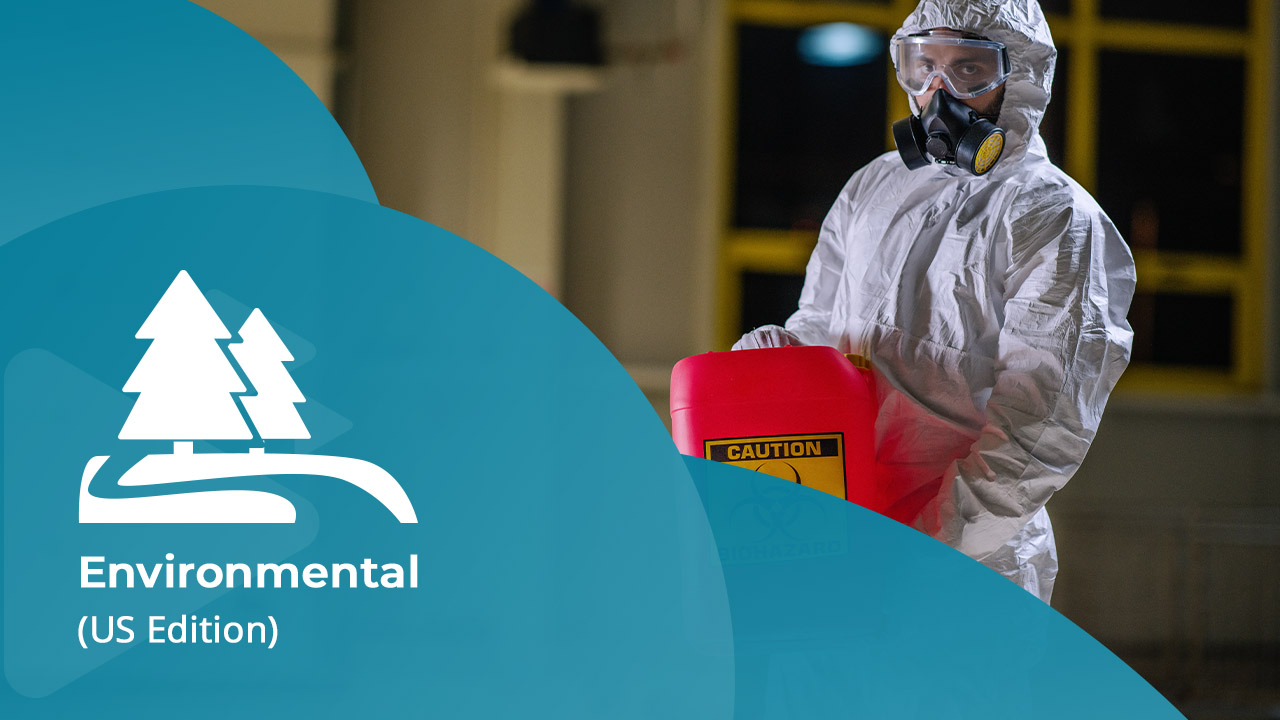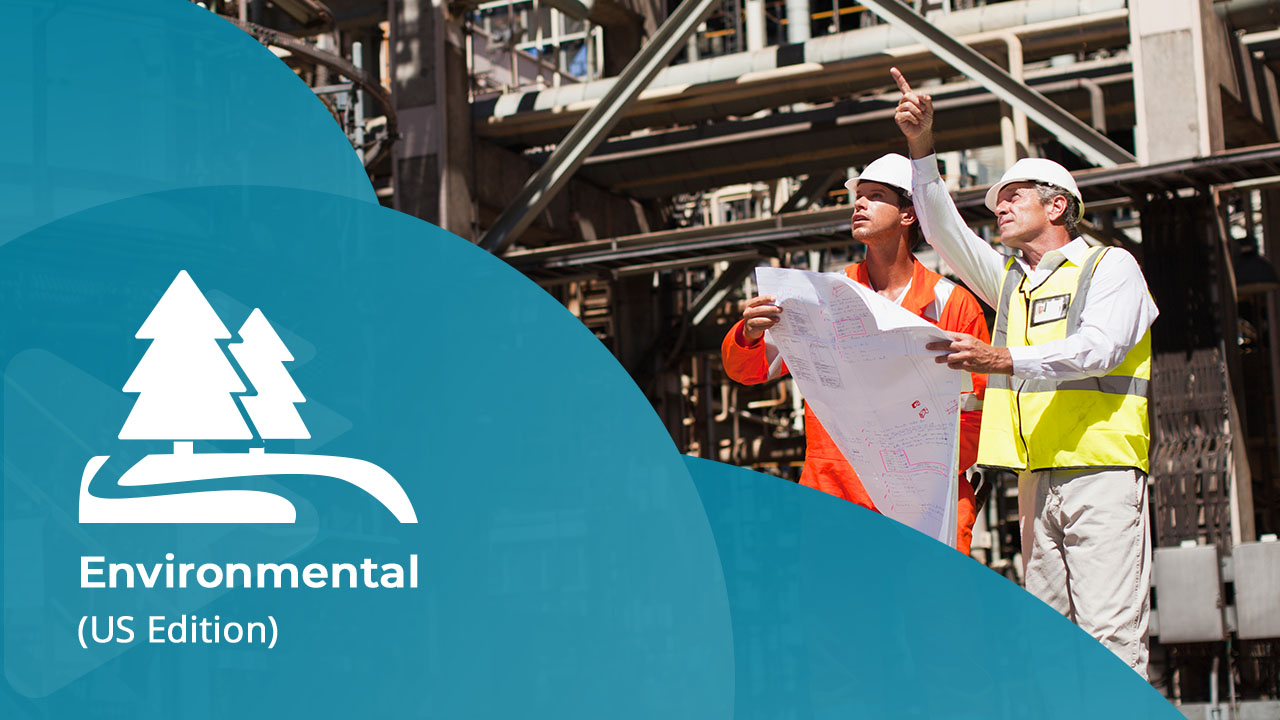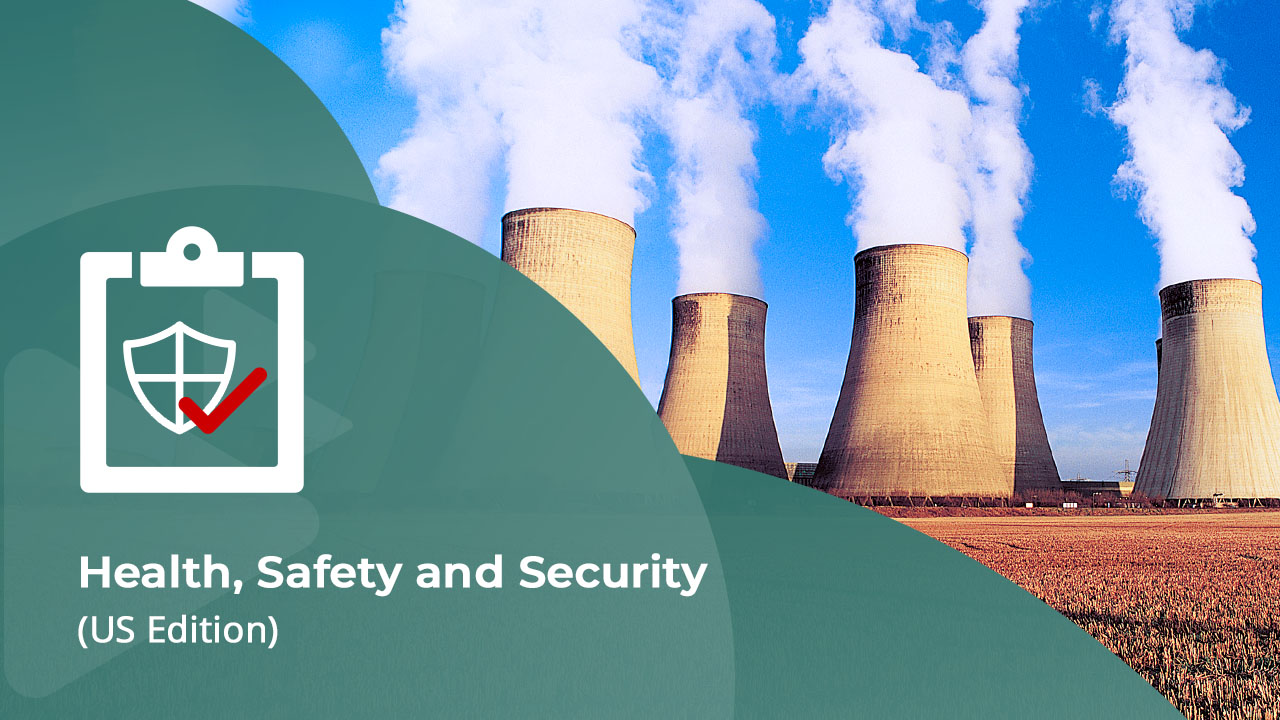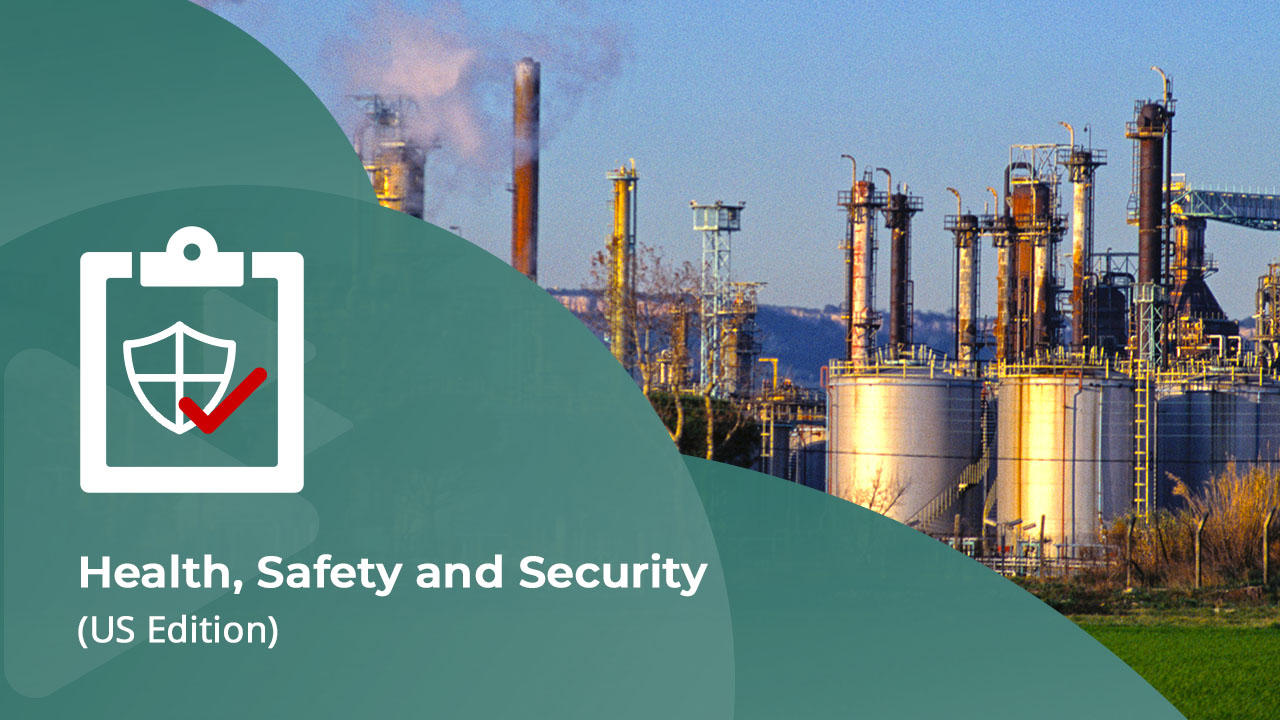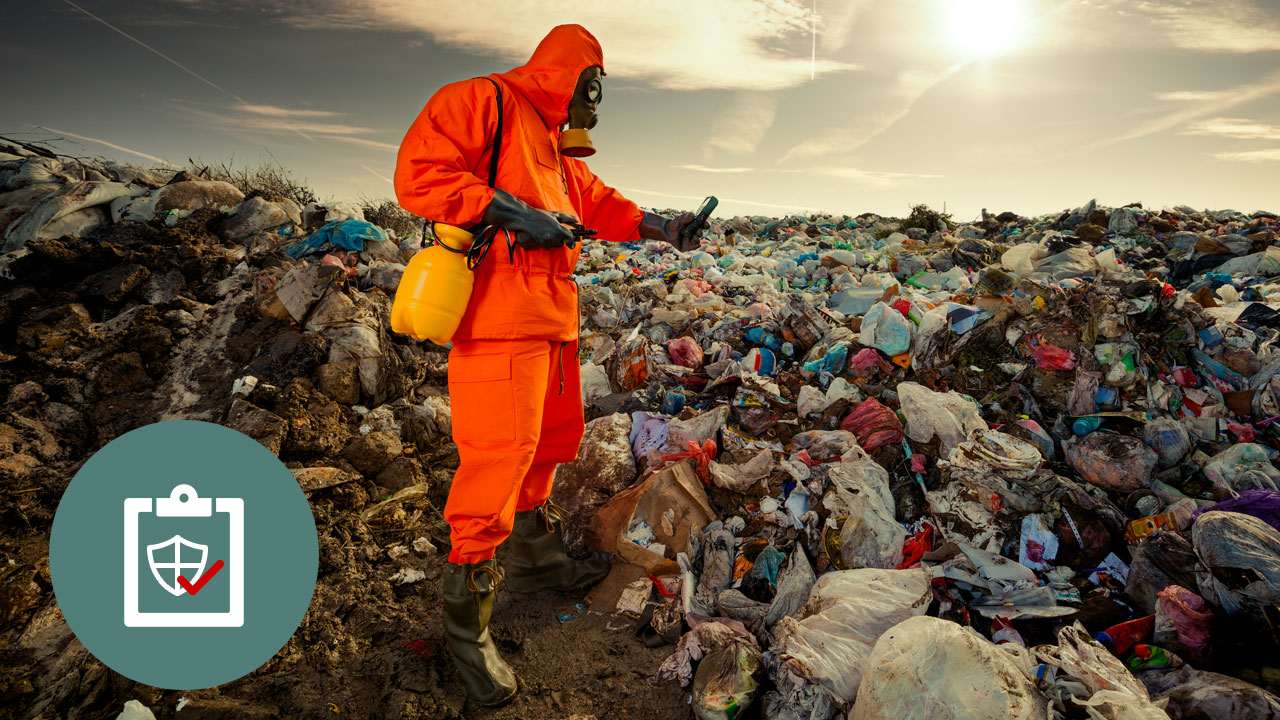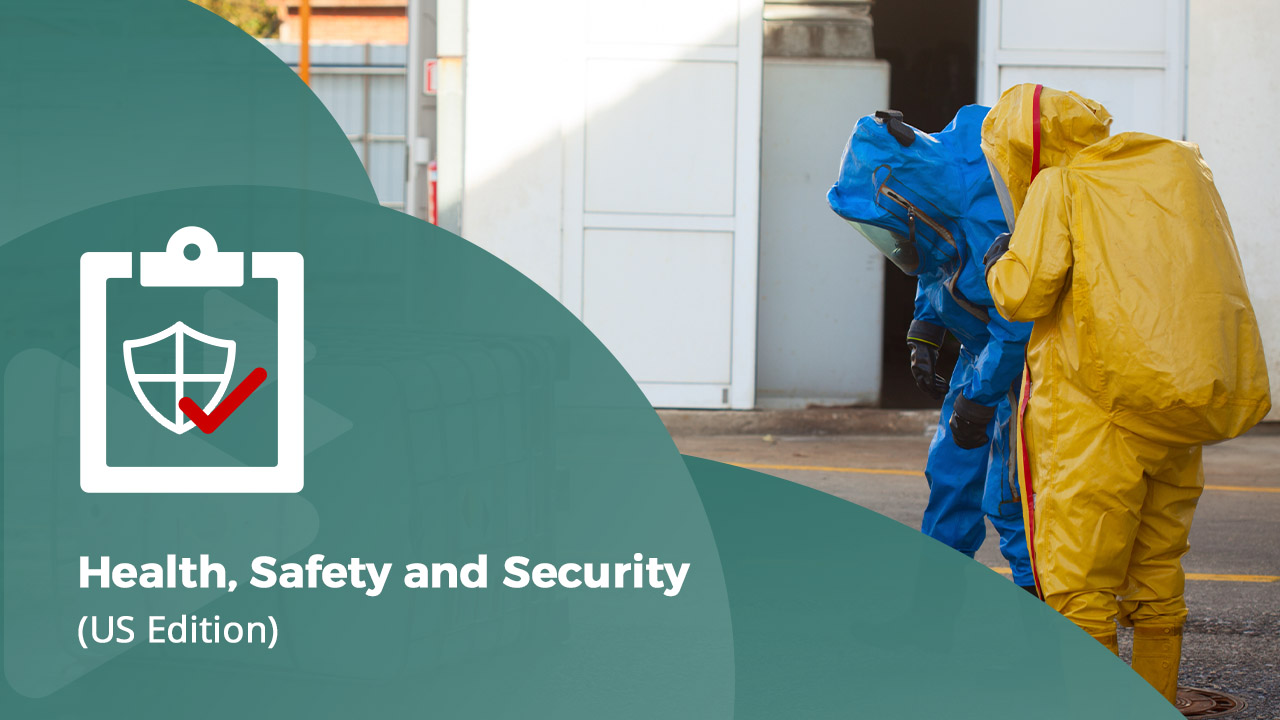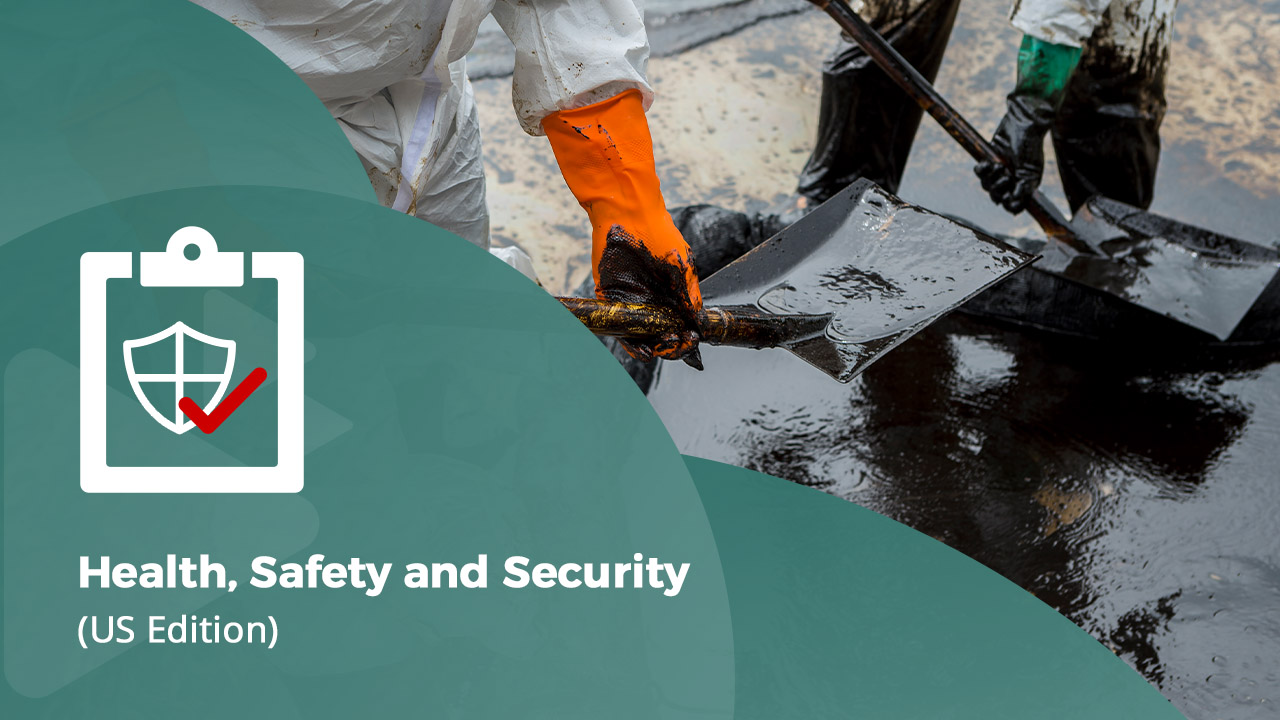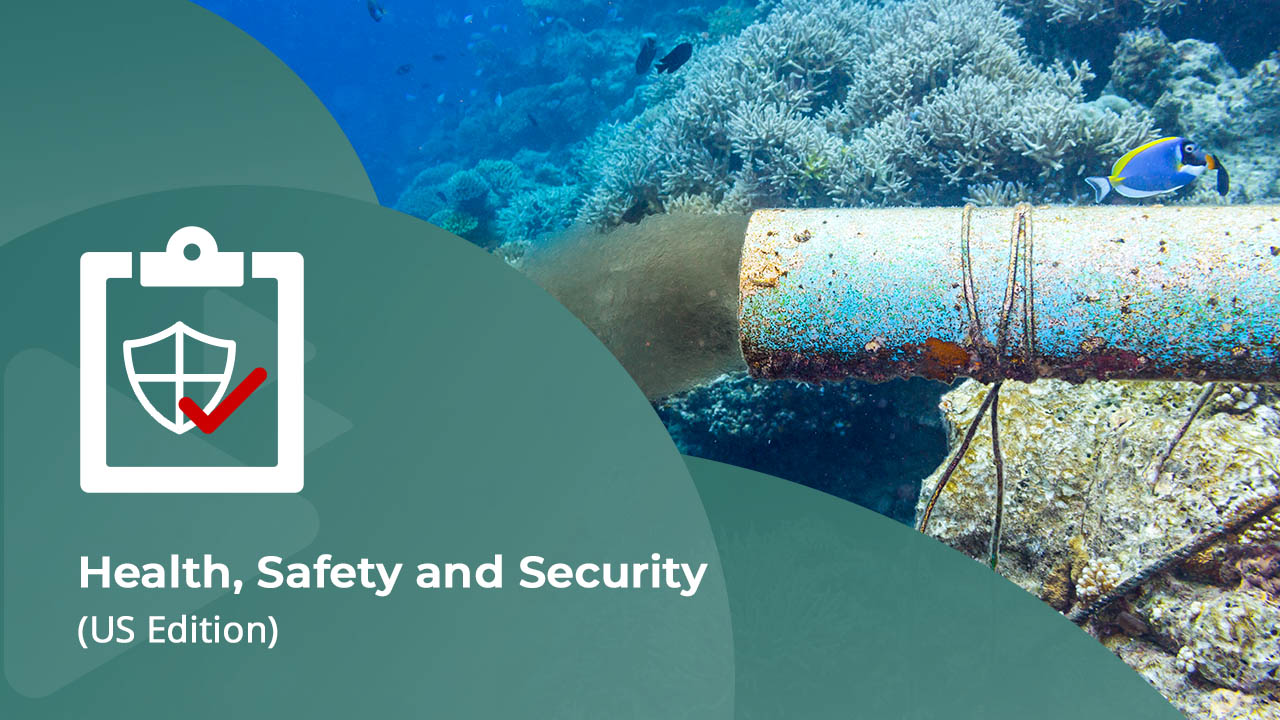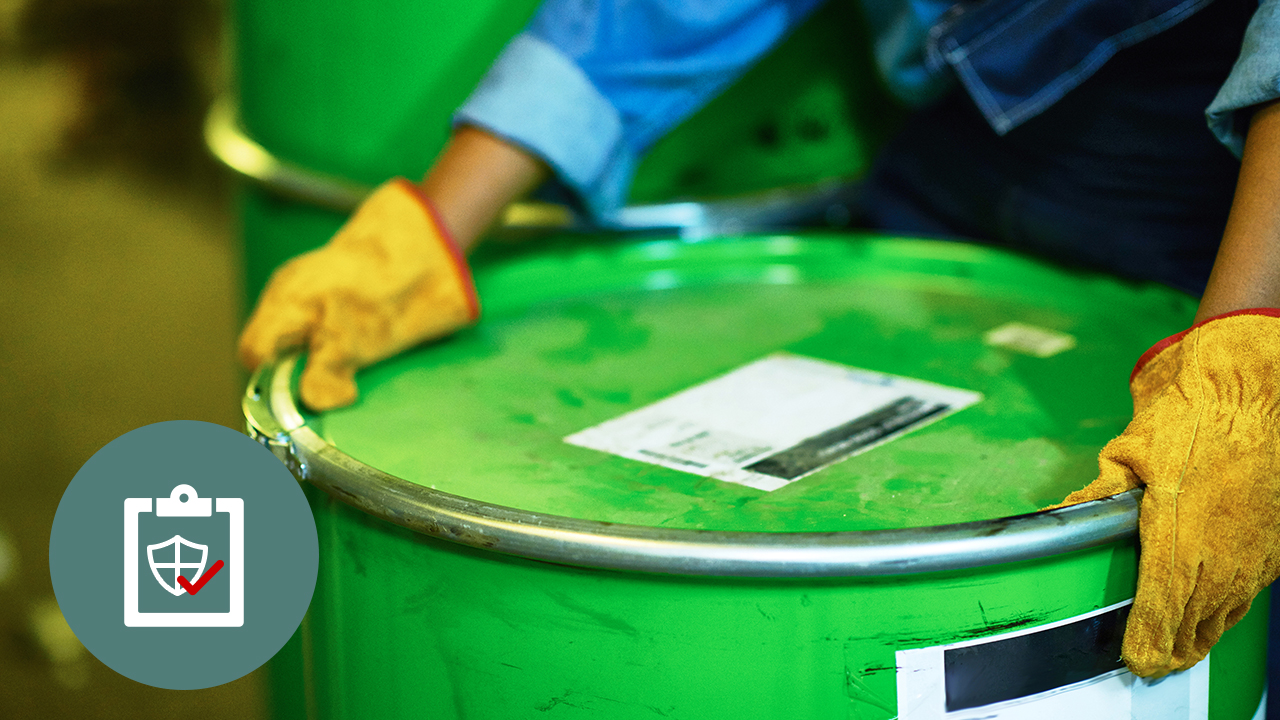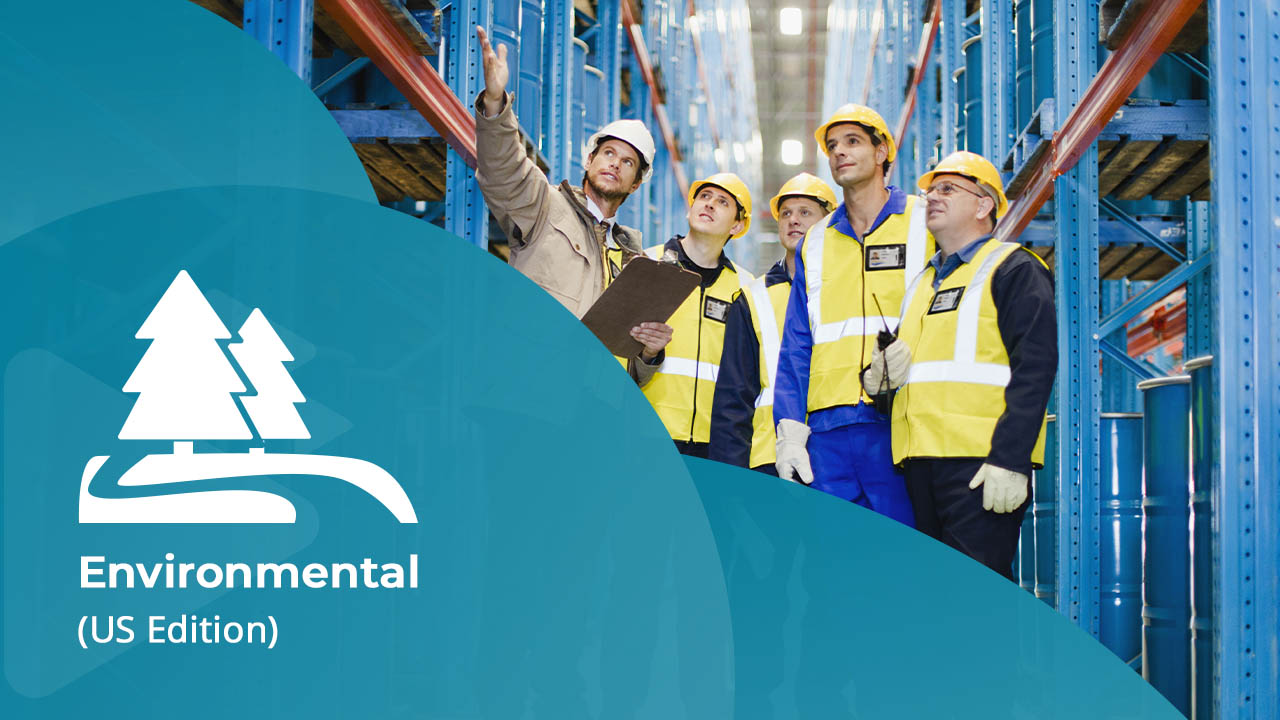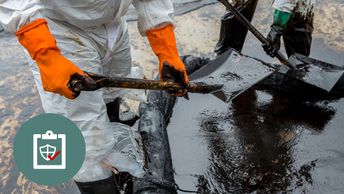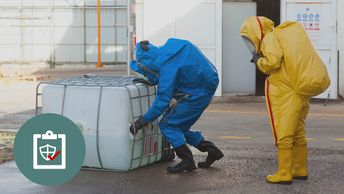Courses for Environmental - United States Compliance Training
- 13 Courses | 6h 54m 3s
Environmental - United States Compliance courses cover risk areas such as Environmental Management Systems (EMS), Hazardous Waste Generator (RCRA), Environmental Regulations Overview, and more. Explore our courses and unleash your edge.
COURSES INCLUDED
Compliance Course
Biosafety Hazardous Waste Handling and DisposalThis course teaches basic precautions against the transmission of infection from biohazardous waste in the workplace. It describes the various categories of biohazardous waste and how infection can be transmitted by biohazardous waste. It also outlines standard safety precautions against transmission, and guidelines for the safe storage, treatment, and disposal of biohazardous waste. It also describes the steps for cleaning up a biohazardous spillage. This course was developed with subject matter support provided by Winn Forensics, LLC, a professional services company focusing on corporate, business and personal safety training as well as consulting on occupational injury matters. Please note, the course materials and content were current with the laws and regulations at the time of the last expert review, however, they may not reflect the most current legal developments. Nothing herein, or in the course materials, shall be construed as professional advice as to any particular situation with respect to compliance with legal statutes or requirements.
5 topics |
24m
Assessment
Up to 30 languages
Compliance Course
Environmental Management Systems (EMS)Historically, companies have managed their own environmental challenges in response to external pressure from government agencies, environmental interest groups, and citizens focusing mainly on regulatory compliance. Today, companies recognize the importance of sound environmental management practices that result in economic gain.The International Organization for Standardization (ISO) is a worldwide federation of national standards bodies. International standards covering environmental management are intended to provide organizations with the elements of an effective environmental management system (EMS) that can be integrated with other management requirements and help organizations achieve environmental and economic needs. The standards require that 'each organization shall establish, document, implement, maintain, and continually improve an environmental management system in accordance with the requirements of the international standard and determine how it will fulfill these requirements.' Additionally, all employees and contractors of ISO 14001 certified companies must be aware of the importance of conformance with the company's environmental policy, the roles and responsibilities associated with achieving conformance to the environmental policy (including preparedness and response requirements), and the potential consequences of departure from specified operating procedure.In this course, learners will be introduced to the important concepts of EMS and find out how these apply to their own company's EMS.Skillsoft Corporation is not affiliated with or sponsored by the ISO and does not have a relationship with the ISO. As such, Skillsoft is not authorized or approved to act on behalf of the ISO, and is not authorized by ISO to sell or deliver ISO owned products or services.The course was developed and reviewed with subject matter support provided by certified subject matter experts and industry professionals. Please note, the course materials and content were current with the laws and regulations at the time of the last expert review, however, they may not reflect the most current legal developments. Nothing herein, or in the course materials, shall be construed as professional advice as to any particular situation with respect to compliance with legal statutes or requirements.
17 topics |
52m
Up to 30 languages
Compliance Course
Environmental Regulations OverviewThis course provides an overview of major environmental laws and regulations and the specific standards that outline requirements to comply with them. The content in this course is designed to comply with the intent of the applicable regulatory requirements. Learner objectives are to define the purpose of the Toxic Substances Control Act (TSCA); specify the purpose of the Resource Conservation and Recovery Act (RCRA); specify the purpose of the Comprehensive Environmental Response, Compensation, and Liability Act (CERCLA), also known as Superfund; specify the purpose of the National Environmental Policy Act (NEPA); and identify the intent of various laws. The course was developed and reviewed with subject matter support provided by certified subject matter experts and industry professionals. Please note, the course materials and content were current with the laws and regulations at the time of the last expert review, however, they may not reflect the most current legal developments. Nothing herein, or in the course materials, shall be construed as professional advice as to any particular situation with respect to compliance with legal statutes or requirements.
6 topics |
34m
Up to 30 languages
Compliance Course
Hazardous Waste Generator (RCRA)This course provides basic information on hazardous waste determination and characterization. In addition, this course describes the three types of generator status ( Very small Quantity Generator, Small Quantity Generator, and Large Quantity Generator) along with applicable requirements. Generators must manage their hazardous waste per the Resource Conservation and Recovery Act (RCRA) regulations. Thus, accumulation, labeling, and other management requirements are described for both satellite accumulation areas and 90-day accumulation areas. Last, the importance of, and methods for, waste minimization and spill prevention and response are defined. The content in this course is designed to comply with the intent of the applicable regulatory requirements. Learner objectives for this course are to identify and characterize all wastes, properly label and manage waste containers, use a manifest when RCRA waste is transported, properly dispose of hazardous waste, prepare waste generation reports, and maintain compliance records. The course was developed and reviewed with subject matter support provided by certified subject matter experts and industry professionals. Please note, the course materials and content were current with the laws and regulations at the time of the last expert review, however, they may not reflect the most current legal developments. Nothing herein, or in the course materials, shall be construed as professional advice as to any particular situation with respect to compliance with legal statutes or requirements.
10 topics |
25m
Up to 30 languages
Compliance Course
Ozone-depleting SubstancesChlorofluorocarbons and other ozone-depleting substances (ODSs) pose a serious hazard to both people and the environment. Therefore, it is important to know how to handle them safely and in compliance with federal regulations. This course will help individuals who may come into contact with ODSs to minimize the risk of exposure to themselves, others, and the environment. It describes practices for the proper handling of ODSs, as well as federal requirements for technician certification, material labeling, recovery and recycling, recordkeeping, and reporting.The course was developed and reviewed with subject matter support provided by certified subject matter experts and industry professionals. Please note, the course materials and content were current with the laws and regulations at the time of the last expert review, however, they may not reflect the most current legal developments. Nothing herein, or in the course materials, shall be construed as professional advice as to any particular situation with respect to compliance with legal statutes or requirements.
10 topics |
46m
Up to 30 languages
Compliance Course
Pollution Prevention for EmployeesThis course is intended for all employees who work in an office or general industry environment. It helps to raise employee awareness about the production of waste and pollution that occurs as a result of everyday actions, as well as offering simple yet effective tips and strategies that will help to reduce the volume and amount of waste and pollution that is generated by them and their workplace as a whole.This course was developed with subject matter expert support by DEKRA – Global advisors for safety testing, consulting, inspection, and certification. Please note, the course materials and content were current with the laws and regulations at the time of the last expert review, however, they may not reflect the most current legal developments. Nothing herein, or in the course materials, shall be construed as professional advice as to any particular situation with respect to compliance with legal statutes or requirements.
5 topics |
22m
Up to 30 languages
Compliance Course
Significant Adverse Reactions from Chemicals (TSCA)The TSCA (Toxic Substances Control Act) is a federal law in the United States that provides guidance for the creation, handling, and distribution of chemical substances in order to protect human health and the environment. Producers of chemical substance need to recognize the importance of Section 8(c) to ensure proper record keeping with regard to significant adverse reactions. In this course, you'll cover the key aspects of TSCA Section 8(c) as well as reporting obligations and the best practices for maintaining compliance.The course was developed and reviewed with subject matter support provided by certified subject matter experts and industry professionals. Please note, the course materials and content were current with the laws and regulations at the time of the last expert review, however, they may not reflect the most current legal developments. Nothing herein, or in the course materials, shall be construed as professional advice as to any particular situation with respect to compliance with legal statutes or requirements.
6 topics |
21m
Up to 30 languages
Compliance Course
Spill Prevention and ControlThis course provides information about hazardous materials, spill control, and confinement methods. The intent of the course is to provide the learner with information about the safe handling, movement, and storage of hazardous materials. The content in this course is designed to comply with the intent of the applicable regulatory requirements. Learner objectives are to define hazardous materials, recognize where spills are likely to occur, specify work practices that can prevent spills from occurring, define the goals of spill control, identify actions to take when responding to a spill of hazardous materials or waste, identify response procedures for personnel who discover a spill, and define the terms containment and confinement. The course was developed and reviewed with subject matter support provided by certified subject matter experts and industry professionals. Please note, the course materials and content were current with the laws and regulations at the time of the last expert review, however, they may not reflect the most current legal developments. Nothing herein, or in the course materials, shall be construed as professional advice as to any particular situation with respect to compliance with legal statutes or requirements.
11 topics |
27m
Up to 30 languages
Compliance Course
Spill Prevention, Control, and Countermeasure PlanWhen petroleum products are accidentally spilled, they may damage the environment and pollute waterways. A spill of only one gallon of oil can contaminate a million gallons of water. This course will provide you with information on the prevention and countermeasures you should take should a spill occur. This training will also provide information on the components of a Spill Prevention, Control, and Countermeasure (SPCC) Plan. The content in this course is designed to comply with the intent of the applicable regulatory requirements. Learner objectives are to identify the information found in an SPCC Plan, identify responsibilities of the SPCC coordinator, select characteristics of secondary containment or diversionary structures, identify characteristics of oil storage containers, and identify security requirements used to help prevent spills.The course was developed and reviewed with subject matter support provided by certified subject matter experts and industry professionals. Please note, the course materials and content were current with the laws and regulations at the time of the last expert review, however, they may not reflect the most current legal developments. Nothing herein, or in the course materials, shall be construed as professional advice as to any particular situation with respect to compliance with legal statutes or requirements.
11 topics |
27m
Up to 30 languages
Compliance Course
Stormwater Pollution PreventionThis course describes the nature and occurrence of stormwater pollution, its environmental effects, and ways to address this important water quality problem. Rainwater that enters a surface water body, by flowing either overland or through a storm sewer system, is called stormwater or stormwater runoff. Stormwater runoff is one of the leading causes of pollution in rivers and lakes. Identifying sources of stormwater pollution and keeping them from coming in contact with runoff is the best and most economical way to protect the quality of the nation's waters. The content in this course is designed to comply with the intent of the applicable regulatory requirements. Learner objectives are to describe common stormwater pollutants, identify categories covered under the National Pollutant Discharge Elimination System, and discuss methods of preventing stormwater pollution.The course was developed and reviewed with subject matter support provided by certified subject matter experts and industry professionals. Please note the course materials and content were current with the laws and regulations at the time of the last expert review; however, they may not reflect the most current legal developments. Nothing herein, or in the course materials, shall be construed as professional advice as to any particular situation with respect to compliance with legal statutes or requirements.
11 topics |
34m
Up to 30 languages
Compliance Course
Toxic Substances Control Act (TSCA)The Toxic Substances Control Act, or TSCA, reviews and regulates chemical substances and mixtures used in commerce. TSCA gives the Environmental Protection Agency, or EPA, authority to regulate industrial chemicals before and during use in the market. In this course, you will learn about TSCA and who and what is covered by its regulations. You'll cover compliance requirements for production, importation, use, and disposal of both new and existing chemicals, as well as determining which chemicals may be subject to more detailed regulations – in particular PCBs, lead, and asbestos, which are known to present specific health concerns. Finally, you'll discover how TSCA is changing and adapting to reflect advances in scientific understanding and the applications of chemistry.The course was developed and reviewed with subject matter support provided by certified subject matter experts and industry professionals. Please note the course materials and content were current with the laws and regulations at the time of the last expert review; however, they may not reflect the most current legal developments. Nothing herein, or in the course materials, shall be construed as professional advice as to any particular situation with respect to compliance with legal statutes or requirements.
7 topics |
40m
Up to 30 languages
Compliance Course
Universal Waste RuleThe federal Universal Waste Rule provides generators with a more flexible approach for managing certain widely-generated, low-risk hazardous waste streams. The flexibility is intended to encourage resource conservation, as well as the diversion of universal wastes from landfills. The content in this course is designed to comply with the intent of the applicable regulatory requirements. In this course, you'll learn how to identify the characteristics of batteries that make them a hazardous waste, as well as identify basic handling requirements of lamps that qualify as universal waste. You'll also cover labeling and handling requirements as per the Universal Waste Rule for aerosol cans, pesticides, and mercury-containing equipment. Additionally, you'll learn to recognize the types of regulated participants as well as what is required of them under the Universal Waste Rule.The course was developed and reviewed with subject matter support provided by certified subject matter experts and industry professionals. Please note, the course materials and content were current with the laws and regulations at the time of the last expert review, however, they may not reflect the most current legal developments. Nothing herein, or in the course materials, shall be construed as professional advice as to any particular situation with respect to compliance with legal statutes or requirements.
11 topics |
37m
Up to 30 languages
Compliance Course
Used Oil ManagementFailure to properly dispose of used oil is a serious, but little recognized, environmental problem. This half-hour course reviews the various regulatory requirements associated with used oil management primarily from a generator's perspective. The goal of this training is to provide you with an overview of the used oil management programs and explain the different regulatory scenarios that apply to used oil. The training also provides basic information for used oil handlers whose activities are regulated by the Used Oil Management Standards. The content in this course is designed to comply with the intent of the applicable regulatory requirements.The learning objectives of the course are to describe what constitutes used oil and when used oil is considered hazardous waste; indicate the regulatory path that must be followed based on specific used oil mixtures; identify used oil generators and discuss the regulatory requirements they need to follow; state the used oil record-keeping, transporting, and recycling requirements; and summarize how used oil filters are managed.The course was developed and reviewed with subject matter support provided by certified subject matter experts and industry professionals. Please note the course materials and content were current with the laws and regulations at the time of the last expert review; however, they may not reflect the most current legal developments. Nothing herein, or in the course materials, shall be construed as professional advice as to any particular situation with respect to compliance with legal statutes or requirements.
9 topics |
22m
Up to 30 languages
SHOW MORE
Request a demo
YOU MIGHT ALSO LIKE
COMPLIANCE-COURSE
Spill Prevention, Control, and Countermeasure Plan
COMPLIANCE-COURSE
Environmental Regulations Overview
COMPLIANCE-COURSE
Spill Prevention and Control
